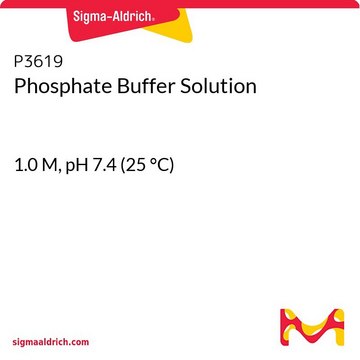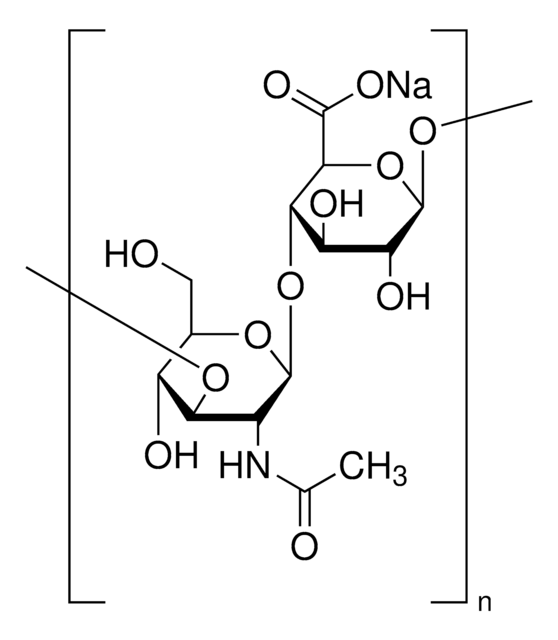94046
Sodium phosphate dibasic solution
BioUltra, 0.5 M in H2O
Synonym(s):
Disodium hydrogen phosphate solution, di-Sodium hydrogen phosphate solution
About This Item
Recommended Products
product line
BioUltra
Quality Level
form
liquid
concentration
0.5 M in H2O
impurities
insoluble matter, passes filter test
≤0.001% total nitrogen (N)
pH
8.8-9.4 (25 °C, 0.5 M in H2O)
solubility
H2O: 0.5 M at 20 °C, clear, colorless
density
1.064 g/mL at 20 °C
anion traces
chloride (Cl-): ≤10 mg/kg
sulfate (SO42-): ≤50 mg/kg
cation traces
Al: ≤1 mg/kg
As: ≤0.1 mg/kg
Ba: ≤1 mg/kg
Bi: ≤1 mg/kg
Ca: ≤5 mg/kg
Cd: ≤1 mg/kg
Co: ≤1 mg/kg
Cr: ≤1 mg/kg
Cu: ≤1 mg/kg
Fe: ≤1 mg/kg
K: ≤20 mg/kg
Li: ≤1 mg/kg
Mg: ≤1 mg/kg
Mn: ≤1 mg/kg
Mo: ≤1 mg/kg
Ni: ≤1 mg/kg
Sr: ≤1 mg/kg
Zn: ≤1 mg/kg
λ
0.5 M in H2O
UV absorption
λ: 260 nm Amax: 0.019
λ: 280 nm Amax: 0.016
application(s)
diagnostic assay manufacturing
SMILES string
[Na+].[Na+].OP([O-])([O-])=O
InChI
1S/2Na.H3O4P/c;;1-5(2,3)4/h;;(H3,1,2,3,4)/q2*+1;/p-2
InChI key
BNIILDVGGAEEIG-UHFFFAOYSA-L
Looking for similar products? Visit Product Comparison Guide
Application
- to supplement Dulbecco′s Modified Eagle Medium (DMEM) in calcifying medium to induce the calcification of vascular smooth muscle cells (VSMCs)
- to prepare a stock solution of CaCl2 and MgCl2 to synthesize calcium phosphate (CPB) and magnesium phosphate bions (MPBs) respectively
- to supplement 2xYT agar plates to culture BL21 DE3 star cells and BL21dLac Gold cells
Storage Class Code
10 - Combustible liquids
WGK
WGK 1
Flash Point(F)
Not applicable
Flash Point(C)
Not applicable
Personal Protective Equipment
Certificates of Analysis (COA)
Search for Certificates of Analysis (COA) by entering the products Lot/Batch Number. Lot and Batch Numbers can be found on a product’s label following the words ‘Lot’ or ‘Batch’.
Already Own This Product?
Find documentation for the products that you have recently purchased in the Document Library.
Customers Also Viewed
Our team of scientists has experience in all areas of research including Life Science, Material Science, Chemical Synthesis, Chromatography, Analytical and many others.
Contact Technical Service







